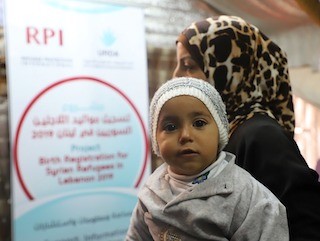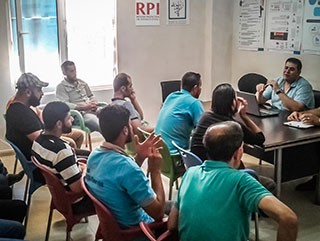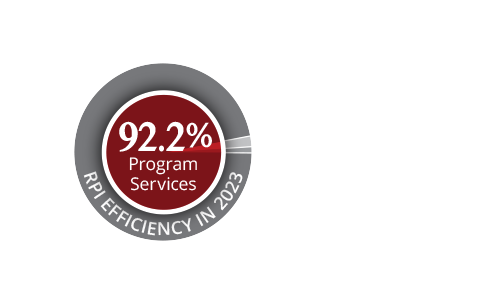Protection and Self-Reliance
Enabling dignity in urban displacement and informal camps
Ukraine: 74,686 war-affected civilians in Ukraine have been assisted by traveling RPI staff and volunteers and by RPI support to Ukrainian and Romanian charity partners, as captured by Ukraine’s Kherson regional administration news, NBC Boston, CBS Channel 4, Belmont Journal, WGBH Boston, and NewsNation’s Morning in America Show. RPI continues its humanitarian aid in 2025.
RPI staff and volunteers have made over a dozen aid trips into Ukraine – including Kherson, Zaporizhzhia, Mykolaiv, Chernivtsi and Odessa, delivering aid to internally displaced persons (IDPs), schools-turned-shelters for IDPs, hospitals (primarily children and women’s), Ukrainian partner charities, and an orphanage/boarding school for children with disabilities.
RPI has also equipped, funded, and helped its Ukrainian & Romanian partners to coordinate the medical evacuations of 53 surrogate infants from Ukraine and the evacuation of over 3,000 Ukrainian civilians to the Romanian and Moldovan borders. RPI has procured and delivered food, hygiene items, minibuses. RPI has seen firsthand the medical and psychological consequences for children unable to flee frontline areas under Russian attack and occupied villages.
RPI has funded implementing Ukrainian charity partners The Way Home in Odessa and Bright Kids in Kyiv to provide art therapy and access to a mental health specialist for women and children and cash aid to families caring for children with disabilities.
In 2025, RPI continues to fund the logistics of food and medical deliveries by Romanian charity partner Voluntari Fara Frontiere for frontline civilians across Ukraine. In the US, RPI packs and sends donated humanitarian goods to Ukrainian partners Happy Child Foundation in Zaporizhzhia, Way Home Odesa Charity Fund, CVA Artem Marchenko Charitable Fund in Kremenchuk, and Charity Fund Andreeva Katerina in Sumy for distribution to evacuees, IDPs, children with disabilities and orphans. In March 2025, Katerina came under attack evacuating elderly civilians and animals from frontline areas in Sumy region, northeast Ukraine, as captured live by Ukrainian TV news.
Gaza: Refugee Protection International (RPI) and long-time Middle East implementing partner charity Kids Paradise (KP) have aided 193,894 primarily women, children and elderly in war-torn Gaza through relief programs Malak Fund and Gaza Giving. Thanks to our generous supporters, KP-implemented community kitchens serve hot meals to internally displaced persons (IDPs) in West Khan Younis, while much needed food and hygiene supplies have been delivered from Jordan to North Gaza and Gaza City through RPI’s support to Molham Volunteering Team and thereby the Jordanian Hashemite Charitable Organization and then distributed by KP with RPI’s funding. Psychosocial support for children, shelter insulation, winter clothing, thermal wear and water well repairs have also been provided.
Background: Following the May 6th internal evacuation orders issued to civilians in eastern Rafah by the Israeli Defense Forces, the 12 RPI-funded KP community kitchens were relocated and consolidated in the ruins of Khan Younis in the Al-Mawasi “humanitarian zone”, where displaced women Malak Fada and Nour Alnajjar led their fellow community volunteers to cook and assist Gaza’s civilian population. Al-Mawasi has little to any potable water, latrines, or protection from the elements. Local food production in the Gaza Strip has been devastated and severe hunger is rising. Repeated internal evacuation orders have placed enormous pressure on demand for food from our joint program’s community kitchen.
In October, 2024 we were heartbroken to lose the lives of 4 of our implementing partner’s volunteers in Jabalia camp, North Gaza, who had just finished distributing bread and water with RPI’s funding. The IPC Famine Review Committee issued a dire famine warming in November 2024, indicating that its worst-case scenarios were already unfolding in parts of the Gaza Strip and that all regions remain in critical or worse levels of acute food insecurity.
During the 2024-2025 winter, RPI-funded Gaza relief programs distributed basic shelter insulation materials, floor mats, blankets, thermal wear, winter clothing and hot food (rice, beans, lentils and other fresh vegetables, proteins) to displaced civilians living in makeshift tents and damaged housing. Funded by RPI, KP has also provided emergency multi-purpose cash assistance (EMPCA) for highly vulnerable civilians, to help them meet urgent food, medical, and evacuation needs. The situation has deteriorated dramatically since a comprehensive humanitarian blockade was placed on the Gaza Strip on March 2, 2025 and hostilities resumed on March 18, 2025.
Please donate to sustain our vital humanitarian programs. Over USD 1 million in donations have been raised in 2024 but more is needed. Videos from the RPI-KP Malak Fund community kitchen show lines of hungry women and children getting longer and more crowded. Please help by donating to our latest PayPal campaign or through GoFundMe.
Our hearts go out to victims on both sides of the Gaza-Israel conflict, particularly for women and children who have experienced tremendous violence. We pray for a resumption of the 2025 ceasefire, respect for international humanitarian law by all parties to the war, the dignified return of hostages, and for an end to the comprehensive humanitarian blockade on the Gaza Strip since March 2, 2025.
Syria Regional Humanitarian Crisis: In 2019, RPI co-designed a self-reliance program with Turkey-based partner Kids Paradise whose key components continue today. These include livelihoods skills training (amigurumi, soap production) and psychosocial support (PSS) for war-displaced Syrian women and relief and PSS support for displaced children. RPI expanded self-reliance collaboration to its long-time refugee-led partner on Syrian refugee education programming Multi Aid Programs (MAPS), which had a similar self-reliance program in Lebanon, and to Ukrainian partner The Way Home Odessa Charity in 2023. In addition to funding the humanitarian skills training, RPI sells the women’s products at fairs across New England to support humanitarian programs in their broader communities. See WBZ-CBS TV Boston’s interview with RPI’s Executive Director Jennifer Hill at the 2024 Holiday Market in Snowport.
RPI has sold a nearly a half million USD in primarily refugee-made products in this program, as well as donated crafts from supporters 70 artists around the globe. This humanitarian cash-for-work program supports women’s income and training stipends with community-based partners. In Lebanon, the program also supports non-formal primary education in the Syrian refugee camps and crisis relief for displaced civilians during the Israel-Lebanon 2024 hostilities. In northern Syria it also supports hygiene supplies, psychosocial support and crisis relief for displaced women and children through our Turkey-led refugee-led partner. Since the fall of the Assad regime, this aid has been been expanded from the Idlib to Aleppo regions of northwest Syria. For information on supported nutrition and medical programs in northeast Syria through our Iraq-based charity partner, see our health and education program page.
Turkey-Syria Earthquake: RPI aided its community-led partners to assist over 21,093 earthquake survivors in Syria (Idlib, Aleppo regions) and Turkey (Kahramanmaras, Antakya, Reyhanli, Gaziantep regions) in the initial weeks after the Feb 2023 earthquakes. Over 12,874 persons received RPI-supported emergency food aid or winter clothing thanks to our Turkey-based refugee-led partners Kids Paradise and Olive Branch NGO. Earthquake aid went to Syrian and Turkish survivors. We have since supported PSS for quake survivors through rapid response health and nutrition teams in northwest Syria with our Turkey-based refugee-led partner HIA and expanded the livelihoods program with KP.
Earlier Support in the Middle East: Since late 2015, RPI has also helped to address the protection crises experienced by conflict-affected Syrian civilians through RPI’s refugee-led partners based in neighboring countries. Inside Syria, children have experienced relentless exposure to aerial bombardment and shelling and loss of loved ones. In neighboring countries, Syrian refugees have fled to urban centers or informal settlements to earn a livelihood. Yet, too often they lack the civil documentation, skills training, and support needed to access decent work, housing, and public services, leaving children at risk of child labor, early marriage, and mental health issues. In Sanliurfa, Turkey, RPI co-designed the partner-run 2-year counseling, case management and legal awareness program for Syrian refugees in need of temporary protection documentation and other support in order to access host country services. RPI co-designed launched a similar partner-run program in Lebanon that assisted Syrian refugee children born in Lebanon to obtain a legal status, e.g. 4-step birth certificate, and better access education and health services. RPI has also enabled partner-run psychosocial support (PSS) and mental health care in Antakya, Turkey and PSS in Syria.
In sum, RPI and its grassroots partners have met 62,769 protection and self-reliance needs (excluding ongoing Gaza relief) by:
- Launching and supporting civilian evacuations from areas of active hostility in Ukraine
- Delivering food aid and relief items to displaced orphans, children with disabilities, IDP hostels, frontline villages, and border reception areas in Ukraine
- Counseling and financially aiding Syrian refugees in Lebanon to complete birth registration to facilitate access to schools and advanced health care
- Providing displaced Syrian children with psychosocial support and individual mental health sessions or referrals to psychologists in Turkey, Lebanon, and Syria
- Supporting the income-generation capacity of female-headed refugee households and victims of violence
- Providing transitional housing, protection, and other social support to vulnerable refugee women and children
- Providing psychosocial support to refugee women and civilians affected by the Beirut explosion in August 2020
- Providing Syrian refugees in Turkey with guidance on documentation procedures and referrals to service providers to legitimize and support their stay
- Providing individual case management: interpretation/translation, accompaniment to service providers, and support with completing application forms
- Encouraging collaboration among our local partners and other nonprofit, private sector, and municipal stakeholders
- Planning for post-conflict information and counseling on housing, land, and property restitution and reparation
Counseling and Case Management
6,785 Syrians in Turkey received consultations on how to access documentation (temporary protection; work permits through employers) and job-seeking, medical, legal, relief, and educational services. 220 Syrian refugees in Lebanon were supported with birth registration.
Supporting Mental Health
Over 1,021 refugees, IDPs, and locals have participated in psychosocial support or individual mental health programming in Lebanon, Syria, and Turkey.
Strengthening Livelihoods that Give Back
8,949 displaced Syrians in Turkey, Lebanon, and Syria received goods or services as a result of vocational/livelihoods skills training, materials, and distribution support provided to 434 refugees and IDPs in teaching, first aid, nursing, psychosocial support, soap/toy/packaging production, sewing, and the use of eco-friendly heating/cooking fuel. In addition, 3,050 refugees received intensive language training in host countries and 647 children in Syria received winter clothing.
SaveSave
SaveSave
SaveSaveSaveSave
SaveSave
SaveSave
SaveSave
SaveSave







